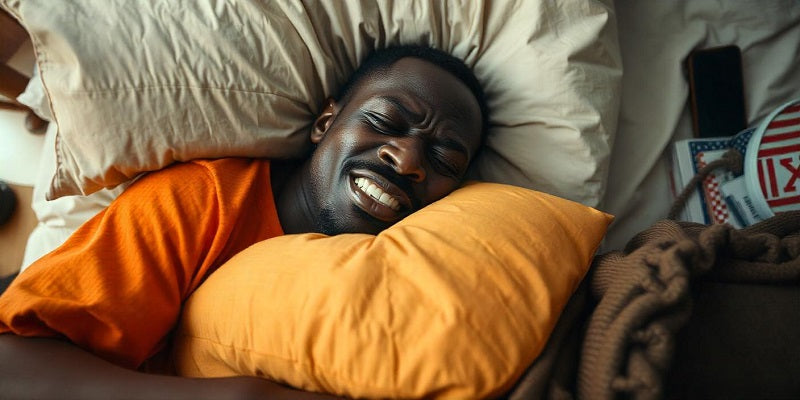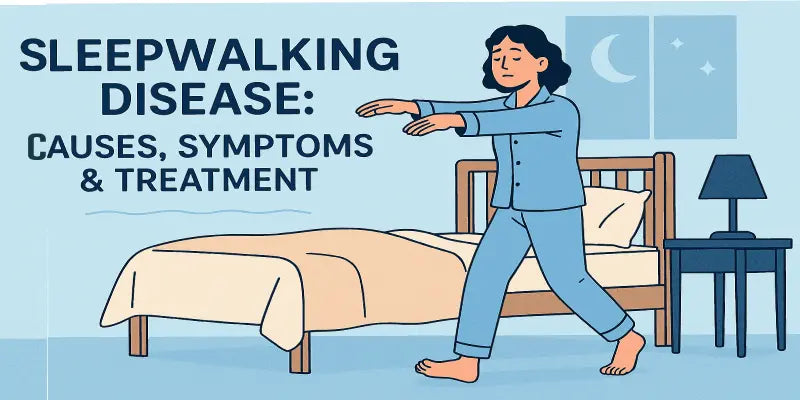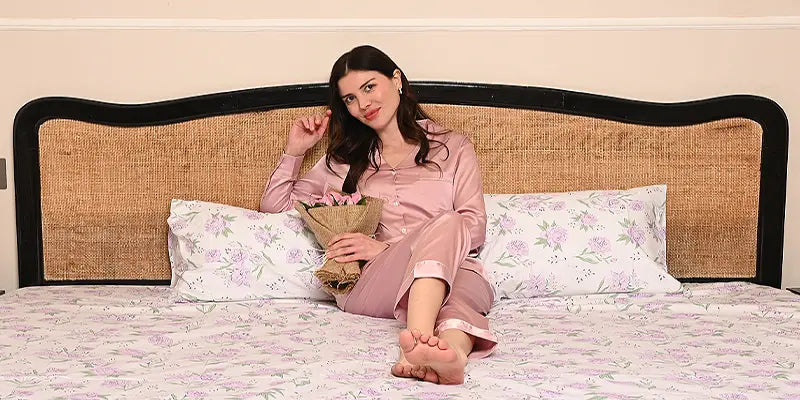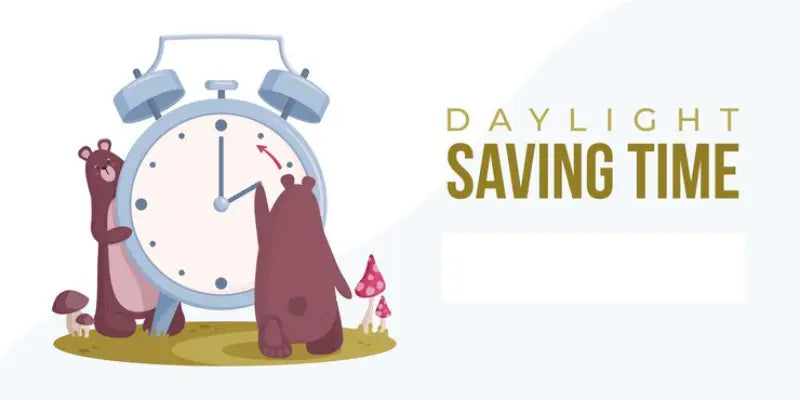
Bruxism (Teeth Grinding) at Night: Causes, Symptoms, Diagnosis & Treatment
Bruxism is a medical word for teeth grinding or jaw clenching. Many people suffer from this common condition, frequently without even recognising it. Because you are unaware of it, clenching or grinding your teeth while you sleep can be more harmful than bruxing while you are awake. To help control the consequences of grinding, people with sleep bruxism frequently require treatment.
In this blog, we’ll explore what is bruxism, causes of bruxism, its symptoms, how it can be diagnosed and how it can be treated.
What is Bruxism?
The involuntary clenching, gnashing, or grinding of teeth is known as bruxism. Although it can happen during the day, it usually happens while you're asleep at night, and you might not even be aware of it.
A lot of people occasionally grind their teeth, particularly when they're under stress. However, frequent use can cause additional strain on your jaws and teeth, which can result in headaches, jaw pain, and other problems.
Causes of Bruxism
While the exact cause of bruxism is not always clear, several factors that can contribute to this condition.
Some of the most common causes include:
Stress and Anxiety
Emotional stress is one of the leading causes of bruxism. People under stress sometimes unknowingly clench their jaw or grind their teeth while sleeping. If you're going through a stressful period at work, in your personal life, or dealing with anxiety, this could increase your likelihood of grinding your teeth at night.
Misaligned Teeth or Bite Issue
If your teeth don’t align properly (a condition known as malocclusion), this can put pressure on your jaw, leading to involuntary grinding. A misaligned bite can be a significant contributing factor to bruxism.
Sleep Disorders
Conditions like sleep apnea or snoring can trigger bruxism. Poor sleep quality can increase the chances of teeth grinding, as your body may subconsciously tense up during the night to fight against interrupted breathing patterns.
Medications and Substances
Some medications, such as certain antidepressants, may increase the risk of bruxism. Similarly, consuming substances like alcohol, caffeine, or recreational drugs can exacerbate the condition.
Genetics
If your parents or close family members suffer from bruxism, you may be more likely to develop it too. Genetics can play a role in how your jaw and teeth function.
Symptoms of Bruxism
Since bruxism often occurs while you're asleep, you may not even realize you're doing it. However, there are several signs that may indicate you have bruxism:
- Jaw pain or tightness
- Frequent morning headaches
- Worn or cracked teeth
- Tooth sensitivity
- Earache
- Disrupted sleep
How Is Bruxism Diagnosed?
Physical examination: Your doctor can check your jaw, teeth, and TMJs for evidence of teeth grinding. A dentist can diagnose bruxism by doing a dental exam. They might notice:
- Common dental issues include worn enamel, flattened or cracked teeth, loose or damaged crowns and fillings, and swollen jaw muscles.
- Tooth wear can also be caused by excessive brushing, abrasives in toothpaste, acidic soft beverages, and hard foods, but a qualified specialist can distinguish between the distinct wear patterns of each cause.
Polysomnography: Some patients may require a sleep study to get a complete diagnosis.
Also Read:- Sleep Like an Astronaut in the Zero Gravity Sleep Position
Treatment Options for Bruxism
Fortunately, bruxism can often be managed and treated effectively.
Here are some of the most common treatment options available:
Mouth Guards and Splints
A dentist can prescribe you to wear a mouth splint or mouth guard while sleeping to protect your teeth from injury. These devices can help by distributing pressure evenly across the jaw, creating a physical barrier between the teeth, and minimizing the sound of teeth grinding. Bruxism mouthguards are mainly made of flexible rubber or plastic.
Mouth splints are usually made of tougher plastic and fit directly to the teeth. Some splints fit over the upper teeth, while others fit over the lower teeth. Depending on the design, a splint will either retain the jaw in a more relaxed position or act as a barrier, allowing the splints to incur damage rather than the teeth.
Stress Management
If you grind your teeth due to stress, you can try practicing relaxation techniques such as meditation to avoid the problem. If your bruxism is caused by anxiety, speaking with a therapist or counselor can be beneficial.
Correcting Bite or Alignment Issues
Dentists can try to cure bruxism by altering the way your teeth fit together, such as grinding down specific teeth. However, there is no proof that this strategy succeeds. If your bite is off, which means your top and bottom teeth do not line up when you close your mouth, your dentist may recommend braces. This condition is known as malocclusion. Braces correct malocclusion, however it is unclear whether they help with bruxism.
Behavioral Therapy
Cognitive Behavioral Therapy (CBT) can help those with bruxism caused by stress or worry. Therapy can assist you in developing strategies for relaxing your jaw during the day, as well as addressing any underlying emotional problems that are contributing to the condition.
Medications
In some circumstances, medicines can be prescribed to treat bruxism. These can include muscle relaxants to relieve jaw tension or anti-anxiety drugs to alleviate stress. However, drugs are usually used as a last option in conjunction with other treatments.
Botox Injections
Botox injections may be used to temporarily relax the jaw muscles in severe cases of bruxism, particularly when the jaw pain is strong. This can assist to minimize the severity and frequency of teeth grinding. However, this is usually a short-term remedy.
Lifestyle Modifications
Cutting back on caffeine and alcohol, avoiding chewing on non-food things (such as pens), and developing a peaceful evening ritual can all help minimize the frequency of bruxism. Quality sleep is key for controlling this illness.
Conclusion
Bruxism can be more than just an annoying habit, it can lead to significant dental and health issues if left untreated. By understanding the causes, symptoms, and treatment options, you can take steps to protect your teeth and improve your quality of life. If you think you might be grinding your teeth at night, don’t hesitate to consult with your dentist to find the best course of action for you. With the right treatment plan, you can enjoy a pain-free smile and better sleep.








